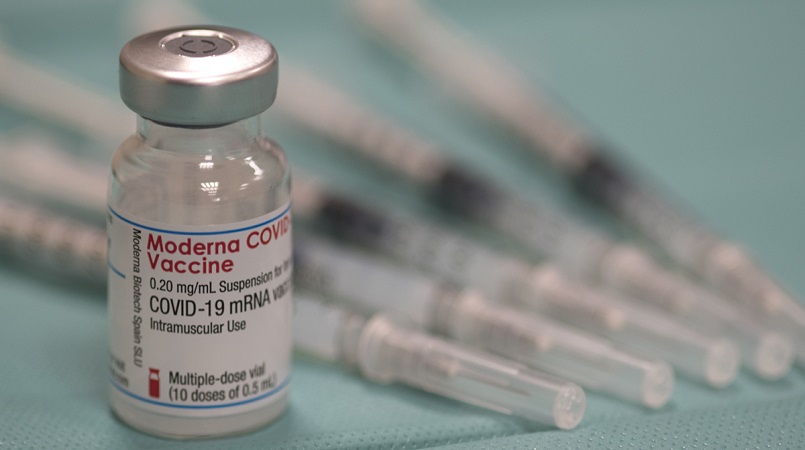
Australia will produce millions of doses of the Moderna Covid-19 vaccine annually as part of a new deal that could have significant implications for the Pacific, in relation to a range of other "neglected tropical diseases."
One epidemiologist says the "possibilities are seemingly endless".
An in-principle agreement has been struck between Moderna, the Australian government and the Victorian government, with the aim of having the facility running by 2024.
Moderna's Australian head, Michael Azrak, said he was proud the company would have an Australian manufacturing presence.
"We're ready to pitch tent in Australia," Mr Azrak said.
"The facility we're envisaging will have the capability of at least 100 million doses if needs be."
The new plant will manufacture Moderna's Covid-19 vaccine and shots tailored for other illnesses like the seasonal flu.
Australia's Prime Minister Scott Morrison said mRNA technology used by Moderna was likely to play an increasingly important role in Australian healthcare.
"This investment will continue to secure Australia's future economic prosperity while protecting lives by providing access to world-leading mRNA vaccines made on Australian soil," he said.
"The new mRNA manufacturing facility in Victoria will produce respiratory vaccines for potential future pandemics and seasonal health issues such as the common flu, protecting lives and livelihoods."
Mr Morrison said the facility would also be able to support Australia's Pacific neighbours and the wider region to deliver vaccines.
Dr Berlin Kafoa, the Director of the Public Health Division at the Pacific Community, said it would have a "huge impact in the Pacific".
"Having it [the vaccine manufacturing facility] in the region allows a country to plan accordingly, with a steady supply from Australia".
Professor Fiona Russell, a vaccines and global child health epidemiologist at the University of Melbourne, told Pacific Beat that she hoped the new facility would also help turn attention to "neglected tropical diseases".
"At the moment, this [mRNA] technology will be applied to influenza...but really importantly, particularly with climate change, targeting diseases like dengue and others like Zika and Chikungunya".
"But also really importantly, other neglected diseases that really need a vaccine very urgently too, such as things people probably haven't heard of, like Group B streptococcus, which is an infection in young infants...and it's (prevalence is) very high in Papua New Guinea," she said.
Photo file
